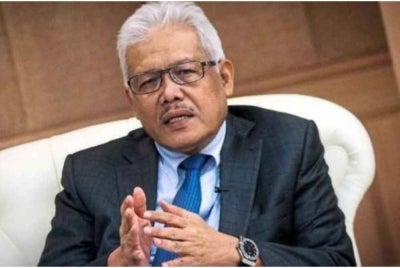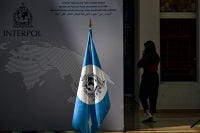Malaysia has opportunity under Anwar to grow influence in West Asia - Experts

NEW DELHI - Malaysia under Prime Minister Datuk Seri Anwar Ibrahim has an opportunity to grow its influence in West Asia, according to political observers.
While Malaysia's stance on the Gaza crisis has drawn attention to Anwar's clear thinking on the Palestinian issue, his October visits to West Asia and North Africa show the prime minister's keenness to build closer economic ties with that part of the world.
Anwar discussed a wide range of issues in Saudi Arabia to make the bilateral relationship more robust.
Trade, energy, water, agriculture, food security, digital economy, tourism and higher education were among the topics the Malaysian and Saudi sides discussed.
Anwar and Saudi Crown Prince Mohammed Bin Salman were unequivocal in their condemnation of Israel's atrocities in Gaza and warned against the forced displacement of Palestinians.
"Malaysia has been historically steadfast in supporting the Palestinian cause, and in the current humanitarian catastrophe in Gaza, it has been vocal about Western hypocrisy as well. Anwar's determination on this issue has been noticed around the world," Mirza Asmer Beg, a professor of political science at Aligarh Muslim University (AMU), told Bernama.
Mirza was questioned about his perspective on Anwar as the leader of the Malaysian government, as the administration approaches its one-year anniversary at the end of the week.
Anwar's talks with United Arab Emirates President Sheikh Mohammed Bin Zayed Al Nahyan had a strong focus on trade and investment.
Anwar has excellent rapport with Turkish President Recep Tayyip Erdogan, and the recent visit to Turkiye should add momentum to bilateral relations.
The prime minister's talks with Egyptian President Abdel Fattah El-Sisi reinforce Malaysia's ties with the Arab world's most populous country and a regional political heavyweight.
Anwar and El-Sisi found common ground on Palestine and stressed the need for international pressure on the Israeli regime to end its attacks on Gaza's population.
Similarly, Malaysia has proactively engaged with key West Asian countries in highlighting Israeli brutalities in Palestine at the United Nations and within the Organisation of Islamic Cooperation (OIC).
"Malaysia and West Asia may not be geographically close but they are bound by common religious and political interests as well as mutually beneficial commercial links," commented Professor Izhar Bilgrami, a former senior faculty of commerce at AMU and a former head of business studies at the University of Technology and Applied Sciences in Al Musannah, Oman.
"Malaysia has made considerable progress in the social and economic sectors, which the Gulf region sees as something that can mutually benefit Malaysia and Arab countries. Infrastructure development, education, energy, trade in agricultural commodities, digital economy and technological innovations are some of the obvious areas of cooperation between the region and Malaysia," Prof. Bilgrami said.
The two political observers also see Malaysia as a crucial link in the efforts by the six-member Gulf Cooperation Council (GCC) and the Association of Southeast Asian Nations (ASEAN) to embark on a new path of cooperation in the changing global economic and political landscape.
"The GCC is a hugely influential economic and political group in the extended neighbourhood that includes Africa and South Asia. There are similarities between what the GCC and ASEAN do in their respective geographies. Therefore, it is encouraging to see them enthusiastic about developing better links," Prof Bilgrami said.
The Malaysian prime minister's West Asia outreach benefits from the country's hub position in East Asia and its traditionally good relationships with major OIC countries such as Saudi Arabia, Iran, Egypt, and Turkiye.
The GCC members as a bloc see greater commonalities with East Asia.
The GCC-ASEAN summit joint statement in October referred to their groups as "two dynamic regions based on their shared visions for the future."
While inspired by their common interests and historical connections, the two sides are aware of a future in which sharing of resources, knowledge and technologies will assume greater importance.
Anwar's international outlook should serve him well in guiding Malaysia to play a more significant role in bringing the GCC and ASEAN closer as well as grow the country's standing within the OIC, Prof. Beg said. - BERNAMA
Download Sinar Daily application.Click Here!














